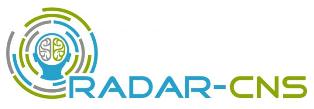 A new EU research programme to develop ways of monitoring three main central nervous system conditions, epilepsy, multiple sclerosis (MS) and depressive disorder, using wearable devices and smartphones has been launched. The RADAR-CNS (Remote assessment of conditionand relapse Central Nervous System) project aims to advance people's quality of life and possibly change how a range of conditions are treated.
A new EU research programme to develop ways of monitoring three main central nervous system conditions, epilepsy, multiple sclerosis (MS) and depressive disorder, using wearable devices and smartphones has been launched. The RADAR-CNS (Remote assessment of conditionand relapse Central Nervous System) project aims to advance people's quality of life and possibly change how a range of conditions are treated.
The programme brings together experts from diverse fields including clinical research, engineering, computer science, information technology, data analytics and health services.
Epilepsy, depression, and MS are diverse conditions, with different causes and symptoms, but all can adversely affect quality of life and life expectancy. In all three conditions, individuals may experience intervals during which their symptoms are manageable but then they can relapse. Patient surveys consistently highlight the need to predict when relapses commence so that appropriate treatments can be administered.
The RADAR-CNS programme's co-leader, Matthew Hotopf, a professor of General Hospital Psychiatry at the Kings College London UK Institute of Psychiatry, Psychology & Neuroscience, said in a press release: "In recent years, the quality and quantity of data that we can collect using wearable devices and smartphones has exploded. It may be that this sort of data can improve clinical care simply by providing more accurate information. Better still; it may be possible to spot when a patient is getting into trouble before their clinic visit".
"For example, in depression, someone's behaviour may change even before they have noticed they are struggling. Their sleep may get worse, or they may stop doing so much in the weeks leading up to a relapse. RADAR-CNS will exploit the huge potential of wearable technologies to improve the lives of the millions of people worldwide with chronic illnesses like epilepsy, depression and multiple sclerosis."
A Horizon 2020 release mentioned that the RADAR-CNS proposal seeks to target two important aspects of central nervous system (CNS) conditions. Firstly, most conditions are marked by numerous cycles of reoccurrences and relapses. Secondly, the commencement of reoccurrences in these conditions can cause changes in physical activity, speech, sleep patterns, reasoning, social activities, and memory that can be monitored and measured remotely by wearable devices and smartphones. Monitoring can also help to reduce hospitalisations by predicting and anticipating relapses and reoccurrences.
The three condition categories were selected on the criteria of unmet need in terms of incidence, associated disability, probability of developing a remote bio-signature predictive of a change in condition, and the therapeutic interests of contributing EFPIA companies. Depression, MS and epilepsy are prevalent, disabling conditions affecting a diverse range of individuals, and commonly characterised by rapid and definite changes in condition states with time lines that, if predicted at onset and pre-empted, would result in significant improvement in overall individuals' outcomes. Moreover, depression and MS are often co-morbidities, offering opportunities to study both diseases in a common population.
The research will also be developed in a way that allows what is learned to be transferred to other conditions, possibly making the benefits of remote measurement technologies prevalent in medicine, and transforming the way people think about prevention and cure. The programme's long-term objective being to build on what is learned and extend that knowledge to conditions such as bipolar disorder, Alzheimer's, schizophrenia, and chronic pain.
The press release explains that individuals will be involved in RADAR-CNS from the beginning, helping to identify the most important symptoms to target. Individuals will also advise researchers on how best to implement remote measurement technologies in ways that are acceptable to individuals, including privacy and security. Wherever possible, RADAR-CNS will use inexpensive and widely available technology, to keep its costs down.
The RADAR-CNS programme RADAR-CNS which runs from 2016 until 2021 is jointly led by Kings College London and Janssen Pharmaceutica NV, which are being funded by the Innovative Medicines Initiative (IMI) a public-private partnership established between the European Federation of Pharmaceutical Industries and Associations (EFPIA) and the European Union and the US.
Source: Multiple Sclerosis Today
